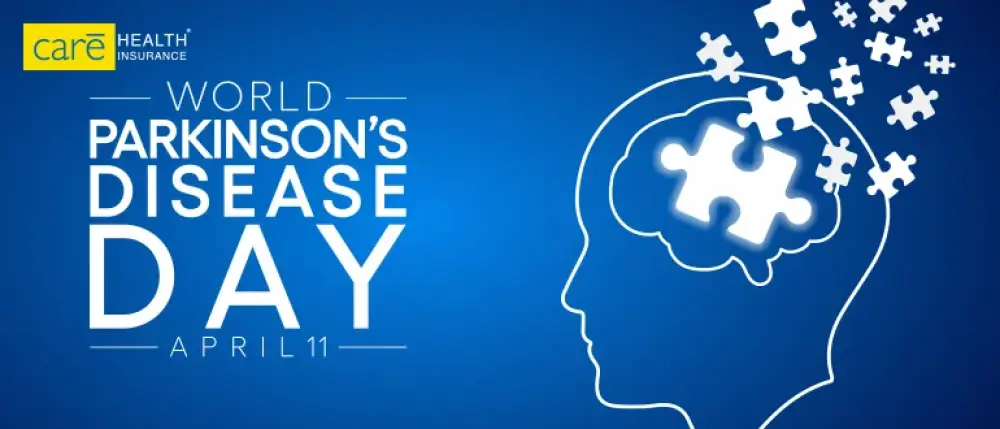Subscribe to get weekly insights
Always stay up to date with our newest articles sent direct to your inbox
Published on 7 Apr, 2025
Updated on 7 Apr, 2025
10 Views
4 min Read

Written by Mudit Handa
Reviewed by Akhil Pillai
0Like
Be the First to Like
Neurodegenerative diseases hold a significant share globally among various age-related physiological issues. A prominent example of such a disease is Parkinson's Disease, which affects millions of people annually. According to a recent report by the Parkinson's Disease Society of the United Kingdom, over 10 million people are currently living with various forms of Parkinson's disease. Parkinson's Europe also reports that the number of individuals with this disease is projected to double by 2050.
To address the growing concern around Parkinson's Disease, World Parkinson's Day is observed on April 11th each year. It aims to raise awareness for better ways of Parkinson's treatment, and to support those living with it.
This article will illuminate the root causes and symptoms of Parkinson's Disease and effective ways to support people living with it.
A celebrated English surgeon, James Parkinson, wrote and published the ‘Essay on the Shaking Palsy’ in 1817. He identified a motor neuro disorder prevalent in older age. In his honour, the disease was named Parkinson's disease.
In 1997, the Parkinson's Disease Society of the United Kingdom designated James Parkinson’s birthday, 11th April, as World Parkinson’s Day. Subsequently, the WHO established the Working Group on Parkinson's Disease in May 1997.
Since then, World Parkinson’s Day has been observed annually on April 11th to raise awareness of Parkinson’s Disease and better serve its community.
World Parkinson's Day holds significant importance for several reasons:
By highlighting these aspects, World Parkinson's Day plays a crucial role in improving the lives of people with Parkinson's and moving closer to a future without the disease.
Although the theme for World Parkinson's Day 2025 has not yet been officially announced, Parkinson's Europe is keen on emphasising positive change for patients living with Parkinson's through awareness campaigns. Through global initiatives, efforts will be made to improve care and empower the community.
Besides raising awareness among the masses about positive ways to live with Parkinson's Disease, it is crucial to educate people about the role of adequate health coverage for such a disease.
Parkinson's disease is a neurological disorder that causes shaking of limbs or hands, stiffness, stressed and imbalanced walking, and loss of coordination. The most common motor symptoms of Parkinson's disease include:
In addition, several non-motor symptoms are also common in Parkinson's patients:
Bradykinesia refers to slowness of movement and a decrease in speed, often with progressive hesitations or pauses.
As dopamine levels decline, these neurons degenerate, impairing the brain's ability to initiate and execute movements. This causes slowness, hesitations, and difficulty with voluntary movements.
There are many ways to participate in World Parkinson's Day:
Living with Parkinson's Disease is challenging, especially for the elderly. In addition to the physical and mental challenges, Parkinson's Disease can create a significant financial burden for both patients and their caregivers. However, with judicious financial planning, the regular expenses associated with Parkinson's Treatment can be easily managed. Therefore, having financial support, such as critical mediclaim insurance that covers neurodegenerative diseases like Parkinson's, is crucial. When choosing a health insurance plan, it's important to check the age limit and coverage details for neurodegenerative conditions.
>> Also Read: 5 Ways to Protect Your Elderly from Parkinson's Disease
Disclaimer: Plan features, benefits, coverage, and claims underwriting are subject to policy terms and conditions. Kindly refer to the brochure, sales prospectus, and policy documents carefully.
Be the First to Like
शुगर कंट्रोल कैसे करे? जानें, डायबिटीज में क्या खाना चाहिए Care Health Insurance in Health & Wellness
Thyroid : मामूली नहीं हैं महिलाओं में थायराइड होना, जानें इसके लक्षण और घरेलू उपचार Care Health Insurance in Diseases
हाई ब्लड प्रेशर को तुरंत कंट्रोल कैसे करें? देखें इसके उपाय Care Health Insurance in Diseases
प्लेटलेट्स की कमी के लक्षण, कारण और इलाज क्या है Care Health Insurance in Diseases
World Chagas Disease Day: Understanding Global Health Impact of Kissing Bugs Care Health Insurance in Awareness Days
World Bipolar Day 2025: Understanding Bipolar Disorder and Breaking Stigma Care Health Insurance in Health Insurance Articles
ट्यूबरक्लोसिस (टीबी) के लक्षण, कारण और इलाज Care Health Insurance in Awareness Days
World Water Day 2025: Raising Awareness About the Global Water Crisis Care Health Insurance in Awareness Days